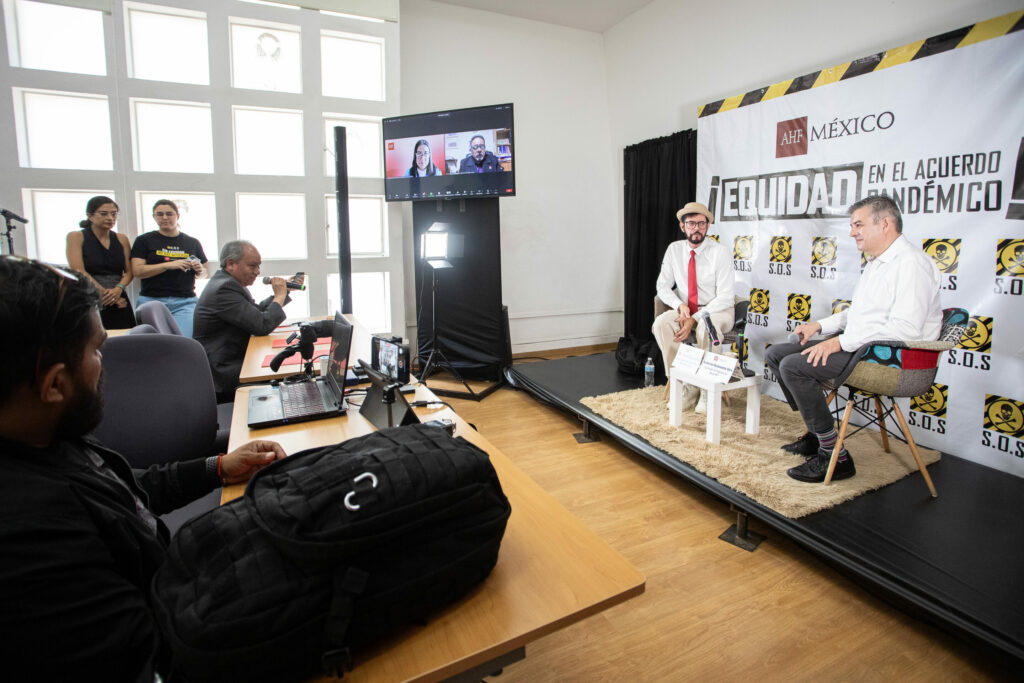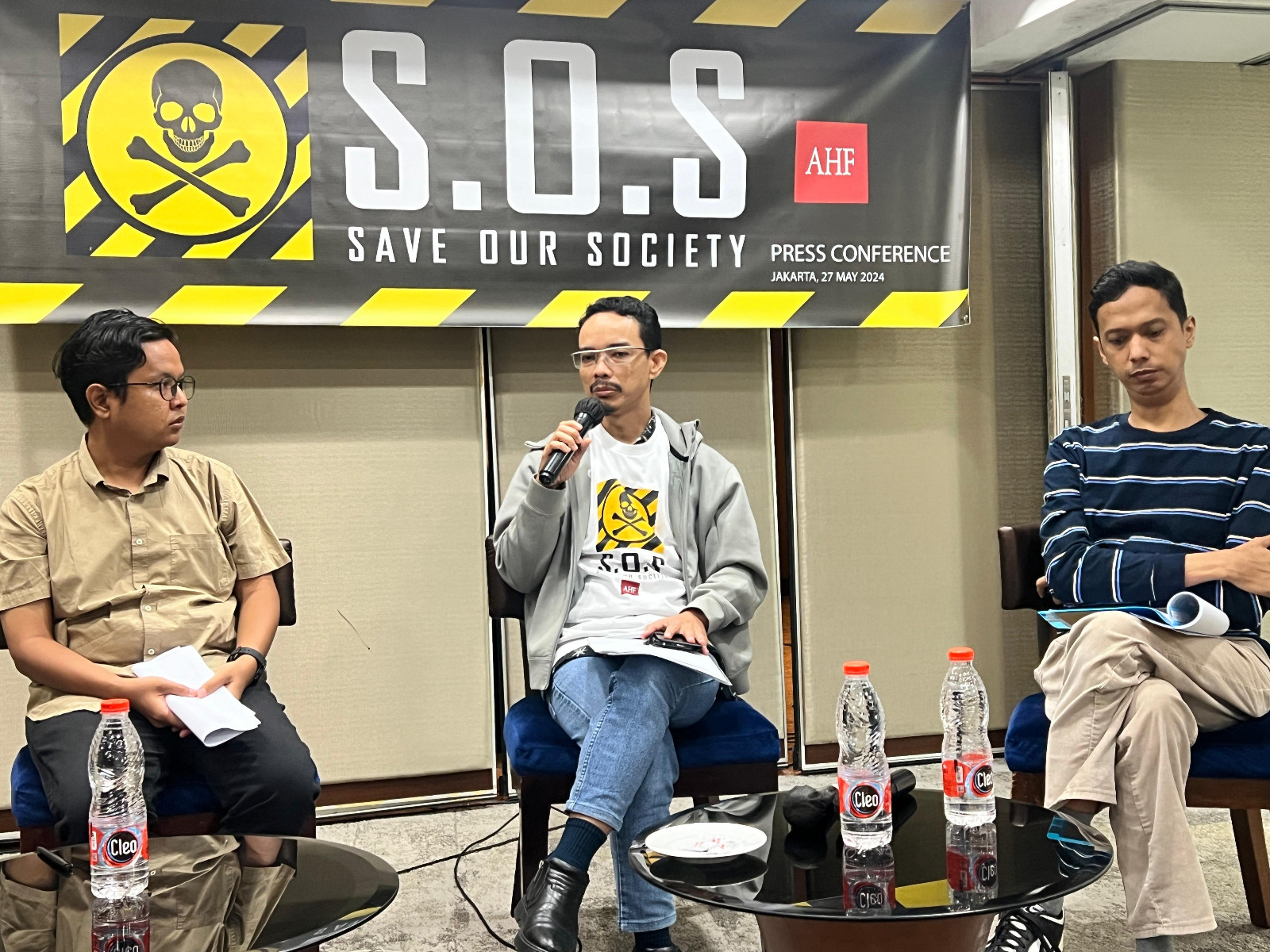After years of back-and-forth talks on how to best protect the world from the next pandemic disaster - World Health Organization Member States remain at a stalemate - with lower-income countries still lacking access to lifesaving health commodities and the ability to secure vital technologies and know-how during global public health emergencies - issues world leaders must rectify immediately.
As the 77th World Health Assembly (WHA) convened this year in Geneva, there was much anticipation as to the fate of the WHO Pandemic Agreement. For the last two years, Member States have been engaged in negotiations to create an agreement to prevent a repeat of the COVID-19 global health catastrophe - a human tragedy that is less about a virus and more about nationalist protectionism, corporate profit interests, and unacceptable inequity.
In December 2021, after the omicron variant was first identified by South Africa and Botswana, Member States voted to establish an Intergovernmental Negotiation Body (INB) to draft and negotiate a Pandemic Agreement. From the start, addressing equity has been a priority for countries, with calls for equity initially being made even among those countries responsible for many of the very inequities observed during the global COVID-19 response.
While initially seeming committed to being guided by noble objectives, European Union nations and the UK have since taken a stance of opposition against proposals aimed at breaking down intellectual property and other barriers to the equitable distribution of vaccines and other pandemic-related health products. This stance has caused an impasse in negotiations, and on the Friday before the assembly, it was announced that countries had failed to reach an agreement by its pre-established deadline of May 24. This, in spite of the fact that, as reported by legal scholars Alexandra Phelan and Lawrence O. Gostin, that “most of the draft treaty text was ‘greened’, meaning it was accepted by the parties".
During discussions on the INB, which took place at the WHA on Wednesday, representatives from Brazil pointed out that financing and equity are the key issues preventing the agreement. This isn’t surprising considering the stated position of powerful Western countries like Germany, whose Health Minister announced at the World Health Summit last year that an “agreement with ‘major limitations’ on intellectual property rights protection will ‘not’ fly for Germany and most of its European Union members.” This announcement was reported and described by Health Affairs, the leading journal of health policy research, as “a victory for the pharmaceutical industry, which has been lobbying hard to influence negotiations.” We agree.
For developing countries, the establishment of binding mechanisms to ensure equitable access and prevent what South Africa has called a “vaccine apartheid” - referring to the rampant hoarding of vaccines, medicines, and other countermeasures by developed countries - has been a top priority. Preventing this from happening again requires nothing less than a binding agreement that specifically addresses critical issues of access and distribution of pandemic-related health products, tech transfers, regional diversification of manufacturing, and financing for low and middle-income countries (LMICs) to build capacity and bring their health systems into the 21st century.

Dr. Jorge Saavedra and Guillermo Bustamante host an SOS: Save Our Society press conference in Mexico City on May 24, 2024, to demand equitable access to vaccines and other medical commodities in the Pandemic Agreement currently being negotiated at the World Health Assembly
The renowned scientific journal Nature estimated that vaccine hoarding alone likely cost more than 1 million lives. This is equivalent to wiping out 10 out of every 12 Brussels residents in under two years. In the same article, Nature reports on the stark contrast of such inequity with vaccination rates, which were 75% in high-income countries but less than 2% in some low-income countries.
However, equitable distribution of vaccines only solves part of the problem. To address this issue, Article 12 of the Pandemic Agreement sought to improve access by creating a Pathogen Access and Benefits Sharing System.
Under PABS, all signatories to the agreement would be required to rapidly share pathogens and genetic sequence data, which are critical for the timely development of diagnostics, vaccines, and therapeutics, with the understanding that participating countries will set aside a certain percentage of health products for equitable distribution to meet the urgent needs of all nations. During negotiations, an agreement could not be reached regarding percentages and triggering events for the distribution of these products, with a proposed best-case scenario of 20% of pandemic-related health products (10% as donations and 10% to be sold at cost). World-leading scientific journal The Lancet described the proposal as “shameful, unjust, and inequitable.”
At best, this proposal would leave 80% of critical vaccines, treatments, and diagnostics inaccessible to LMICs, which comprise 81% of the world's population, which can hardly be described as equitable. Achieving a PABS on equal footing requires real-time access to a sufficient amount of pandemic-related health products, not only during pandemics but also during Public Health Emergencies of International Concern and during peacetime for prevention and preparedness.
It is clear that ignoring lessons from our past is done at our collective peril, and, as put by AHF President Michael Weinstein, this missed opportunity to address systemic inequality in the global public health order by “giving in to pressure from corporate interests and profit motives at this point is beyond foolish".
And while preventing infectious disease outbreaks or pandemics from disproportionally ravaging lower-income countries is not an exclusive concern of the Global South, the resolve to find a solution does not appear to come from what WHO Director-General Tedros has called the "Spirit of Geneva." This is why these future negotiations should be moved to the heart of where equality matters most - to a developing country. This should be done without delay and be concluded before the end of 2024.
The longer we wait, the less pressure and resolve there will be for countries to reach a meaningful agreement on equity. As pandemic amnesia sets in, the odds are greater that countries will fail to take decisive action, ensuring we will again blindly stumble into our next global public health catastrophe.
Guilherme Ferrari Faviero, Director, AHF Global Public Health Institute at the University of Miami
Dr. Jorge Saavedra, Executive Director of the AHF Global Public Health Institute and AHF Mexico

